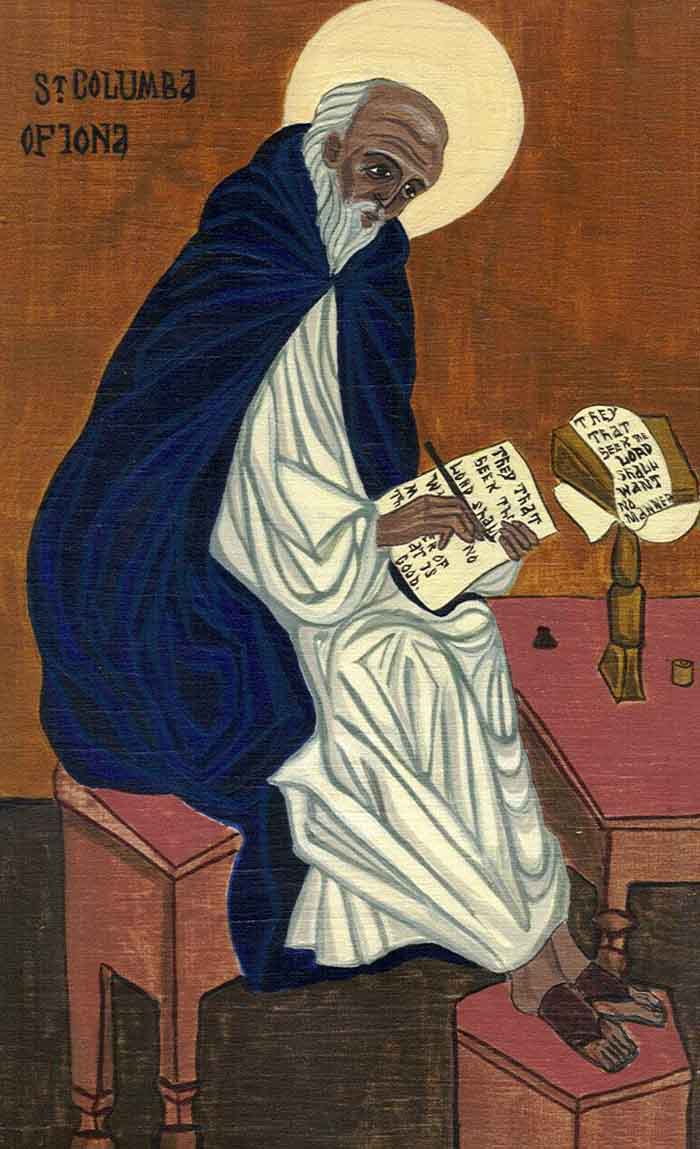+
Most of the forms of benediction in Richard Tatlock's 'An English Benedictional' derive from the Leofric Missal. There have been various debates about the use of these benedictions as to when and where they were employed. Did they come at the end of the Mass, the end of the Morning or Evening Office, or at the end of the Mass of the Catechumens? Perhaps they were employed at all of these points. We were not there, and the texts that have survived do not provide definitive answers.
By looking to Old Gallican and Anglo-Saxon missals, texts and patterns, Tatlock offers his own interpretation that in the Anglican context bishops (or other clergy) would make use of these forms at the end of Holy Mass, Choral Mattins, and Evensong. That seems very sensible to me. However, in those places where the Dismissal of the Catechumens still takes place, would they not serve well as a benediction upon the Catechumens departing from the church before the Celebration of the Holy Eucharist? I think they would.
The argument that they were part of the dismissal of the Catechumens before the Holy Eucharist is a very sound notion. But it can be argued that they were meant as a summary at the end of the Holy Mass. As none of us were there, I think the value in them is their versatility and their specificity with regard to liturgical time and lectionary texts.
Instead of the priest giving the same final form of Benediction week by week, in Tatlock's book we have a rich resource that is not unrelated to the appointed antiphons and other propers that clothe the body of Holy Mass week by week.
Drawing from Tatlock's translations and the formulae from the Leofric Missal, the following is one of the possible ways the final benediction may be given for the Fourth Sunday in Lent:
FOURTH SUNDAY IN LENT
May the God, who hath deigned to bring you thus far on your way,
grant you the blessing of his mercy:
May he accept the abstinence ye have offered him,
and cause the abstinence ye are yet to offer him to be pleasing in his sight;
that, as ye abstain for a season from food and pleasure,
so too ye may abstain from every evil thing:
That, returning thanks to almighty God for every spiritual gift,
ye may come unharmed to an holy Eastertide:
Through Jesus Christ Our Lord, who liveth and reigneth with the Father, in the unity of the Holy Ghost, one God, world without end.
R. Amen.
The Blessing of God almighty, + the Father, the Son, and the Holy Ghost, be upon you, and remain with you for ever. Amen.
+ + +
PASSION SUNDAY
May the Lord kindle within you the fire of love for himself,
and pour upon you the gift of his benediction:
That, as ye offer him the sacrifices of your self-denial,
so also ye may please him with the sacrifice of a lowly and a contrite heart:
May all your prayers ascend on high, to the ears of your Creator,
on the wings of mercy and abstinence;
that ye may be the heirs of eternal blessedness,
and the companions of the Saints in heaven:
And may the Lord God omnipotent,
whose kingdom and dominion endureth for ever,
vouchsafe to grant you these blessings:
and the peace of the Lord be always with you.
R. And with thy spirit.
The Blessing of God almighty, + the Father, the Son, and the Holy Ghost, be upon you, and remain with you for ever. Amen.
















